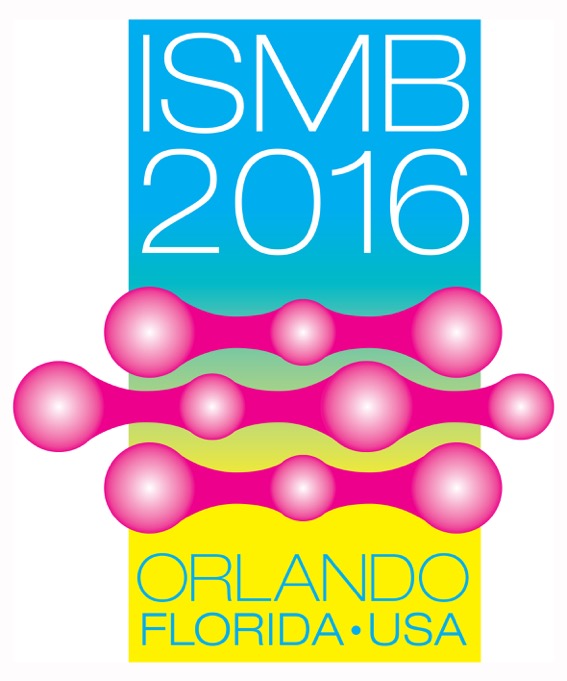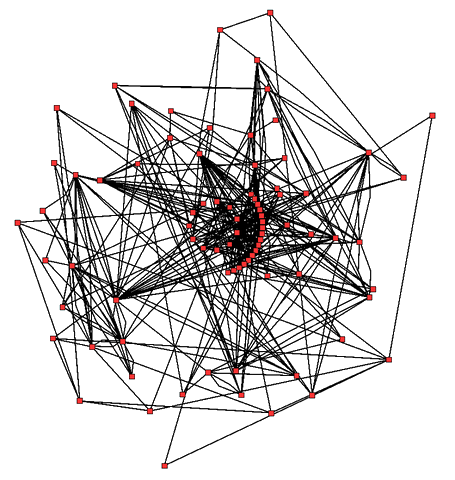Physics of Life 2017
Frans Johansson, in his popular bestseller book The Medici Effect, makes an argument:
The intersection is the best place to innovate. These innovations change the world in leaps along new directions by opening up new fields, creating new information and allowing creators to become leaders. This intersection is the place where wildly different ideas from various areas bump into each other and build upon each other.
Read more →
Overview of BOSC and ISMB, 2016
This year I attended the Intelligent Systems for Molecular Biology (ISMB) from
July 8-12 in Orlando, Florida. But before I talk about my experience of the
conference (and amazing Disney World!), let me roll back a bit and tell you
about why I was there.
 ISMB 2016.
ISMB 2016.
A Letter in the Name of Science
Posted below is an email that I rediscovered in my mailbox a few days ago. I had no memory of it whatsoever, perhaps because I never received a reply from the intended recipient. Whatever be the reasons, looking back at it today feels like discovering a diamond in the rough.
Read more →Metabolic Network Analysis - I
In this short tutorial, we will explore the basic steps of a metabolic network analysis.
For our convenience, we will avoid using full models or discuss their
reconstruction methods, instead focus on simple reactions to create
a theoretical background. However, the steps can be scaled without any loss of
generality. The related exercises should help build a theoretical background
along with necessary programming skills.
 Metabolic network showing interactions between enzymes and metabolites in the Arabidopsis thaliana citric acid cycle. Enzymes and metabolites are the red dots and interactions between them are the lines. Wikipedia
Metabolic network showing interactions between enzymes and metabolites in the Arabidopsis thaliana citric acid cycle. Enzymes and metabolites are the red dots and interactions between them are the lines. Wikipedia
WikiProject article submission
Almost an year ago, I had written a blog post about different Wikipedia WikiProjects and how one could contribute to them. In short, A WikiProject is simply an organized effort by the community of editors on the Wikipedia, where they try to curate and improve the quality of articles belonging to a particular genre or of specific interest to a group. In loose terms, WikiProjects to Wikipedia are what subreddits are to reddit.
Read more →Notes from Systems Biology Winter School
This winter, I attended the fourth session of Winter School on Quantitative Systems Biology at International Centre for Theoretical Sciences (ICTS), Bangalore. The school is organized by the ICTS, Bangalore and ICTP, Italy in jointly as a part of their ICTP-ICTS Programme in Biology since 2012.
Read more →Notes from WMCB 2016
This weekend (Jan 9 - Jan 10), I participated in a workshop on mathematical and computational biology (WMCB-2016) organized at Indian Institute of Science Education and Research Kolkata (IISER-K). This annual workshop is co-sponsored by NNMCB, a group of multiple premier institutions in India that coordinate activities in the area of interest.
Read more →A challenging course catalog
I’m very excited to talk about my course catalog for the fall semester, specially because it’s turning about to be pretty challenging and full of new information.
Prologue: During my research internship at Indian Institute of Science, I had the opportunity to attend several lecture series by eminent professors, who introduced us to different fields (e.g., Biomechanics, Systems Biology) and relevant research they have done in their careers. While all of the lectures were insightful, one which caught my most attention were those delivered Dr. Aditya Murthy on neuroscience. His amazing presentation skills, sense of humor and rigor left me in awe!
Read more →Protein Knots: A tangled story
Journal Club is a weekly paper presentation session organized in our department by us, where one could present an remarkable research finding, discuss a new experimental technique or simply introduce everyone to a new or less explored field in the area of biology. I have mentioned about this initiative in my earlier posts, and it is something that I really feel excited to talk about. The audience size is pretty decent (around 15-20 people) consisting of professors, research scholar, graduates and undergraduate students.
Read more →Working with pore forming toxin - II
Give a man a fish and you feed him for a day. Teach a man to fish and you feed him for a lifetime.
This chinese proverb accurately describes my summer experience at the Indian Institute of Science this year. After weeks of hard work – wet-lab experiments with long hours, nearly two hours of commute everyday, and precarious meal planning – my internship finally concluded on July 10 after eight long weeks (May 11 - July 10).
Read more →Working with pore forming toxin - I
A learning experience is one of those things that says, “You know that thing you just did? Don’t do that.”
Douglas Adams, The Salmon of Doubt
Douglas Adam was correct about Experience. It is a harsh teacher. The fact that words like “struggle”, “fail fast”, “don’t give up” are commonly used to describe some of its lessons, speaks about the inherent difficulty of the whole process — and none of it more visible anywhere than when learning something new.
Read more →research needs funding
Brian Farley writes ..
I’ve said this before on Quora, and I’m probably going to say it many more times, but, all of the problems in academia can be traced back to scarce funding and the ridiculous competition it engenders. The reluctance to fund academia and research, in turn, comes from a completely skewed perception by the public of what academia is supposed to accomplish – which in no small part comes from the capitalist marketplace thinking that permeates almost everything our society does.
Read more →
Papers per week
Research is to see what everybody else has seen, and to think what nobody else has thought.
Reading research papers, literature survey as one may call it, is one of the primary tasks of any research enthusiast, student, academician, or researcher. As we advance through our academic career, the complexity and quantity of content keeps increasing until the text books give up. The inflow of information is too rapid and too vast to be contained and sufficiency conveyed to the target audience, thus necessitating the need of specialized sources.
Read more →